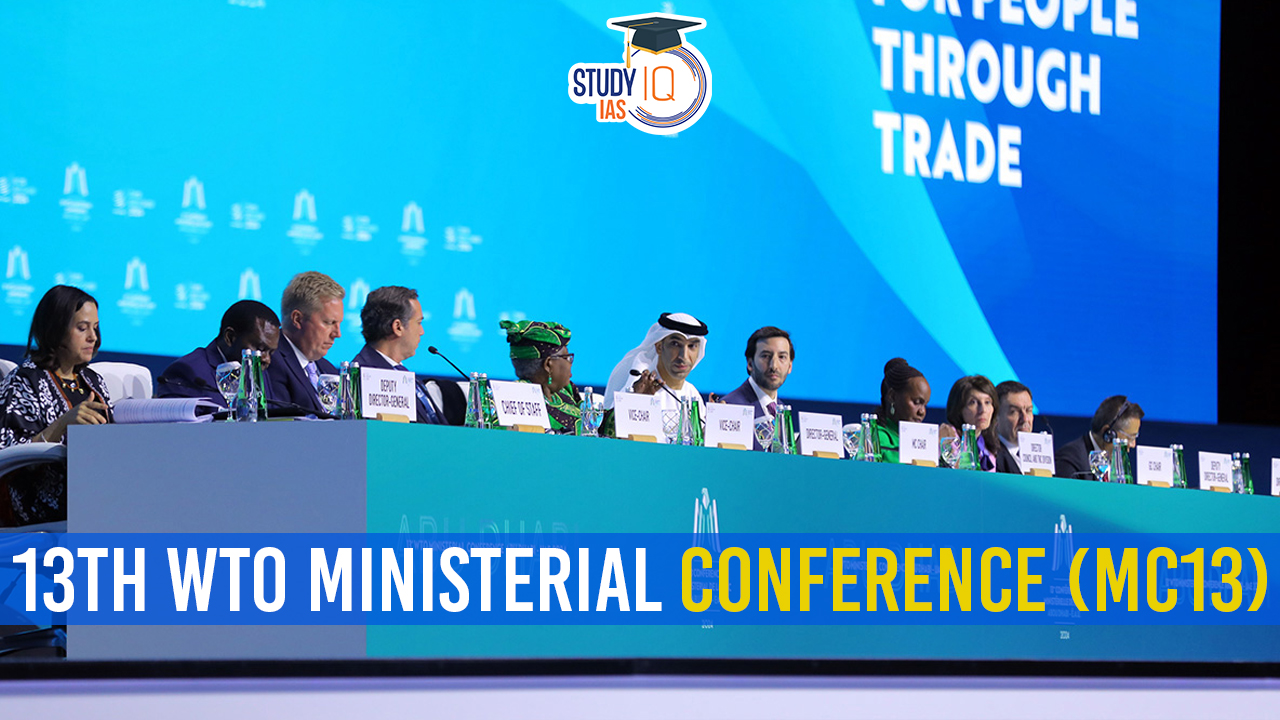Table of Contents
Context: The World Trade Organization’s apex decision-making body concluded its latest meeting with minimal progress on crucial global trade issues, despite an extra day of deliberations.
About WTO 13th Ministerial Conference (MC13)
| WTO 13th ministerial conference (MC13) | |
| Event date | February 26 to March 2, 2024 |
| Participants | Trade ministers of 164 member countries. |
| Location | Abu Dhabi, United Arab Emirates. |
| Purpose | To discuss the backdrop of the uncertain global economic situation due to the Red Sea crisis, the Ukraine-Russia war and the Israel-Hamas conflict. |
| Objective | At MC13, WTO members will have for the first time dedicated discussions on sustainable development. |
Global Trade Challenges
- Recent global events have significantly impacted the trading architecture, including conflicts, disruptions in critical shipment routes, and supply chain recalibrations to lessen dependency on single suppliers like China.
- A trend towards isolationist, tariff-heavy trade policies contradicts the WTO’s goal of promoting open trade for all.
- The Abu Dhabi declaration acknowledged challenges like the need for open, inclusive, and resilient supply chains but offered little concrete action.
- Divergences between the WTO’s 164 member countries persisted on most issues carried forward from Geneva (MC12), including areas of particular interest to India, such as a permanent solution in agriculture for public stock holding to ensure domestic food security or subsidies to the fisheries sector.
E-commerce and Dispute Resolution
- The exemption from customs duties on e-commerce will continue for at least two more years, despite India’s concerns over its impact on national revenue.
- Prospects for reviving the WTO’s defunct dispute resolution body remain low, despite commitments to restore it by 2024.
We’re now on WhatsApp. Click to Join
Achievements and Future Challenges
- India, in collaboration with South Africa, successfully blocked an attempt led by China to introduce an investment facilitation pact into the WTO framework.
- India needs to continue advocating for policy space in sensitive sectors, particularly agriculture.
- The WTO must intensify efforts to remain relevant in a polarised global context, moving beyond declaring biennial meeting failures as successes.


 Sarhul Festival: A Sacred Adivasi Celebr...
Sarhul Festival: A Sacred Adivasi Celebr...
 Khadi and Village Industries Commission ...
Khadi and Village Industries Commission ...
 What is Vibe Coding ? The Future of Effo...
What is Vibe Coding ? The Future of Effo...





















